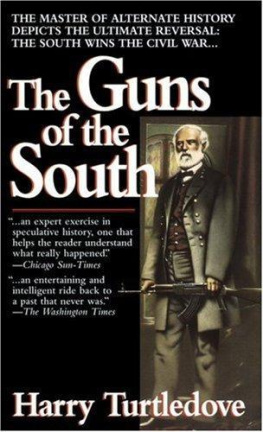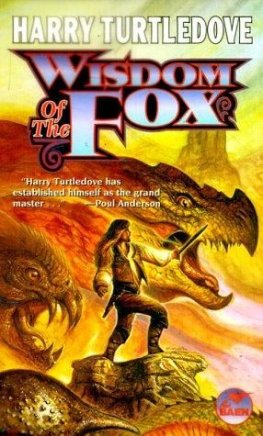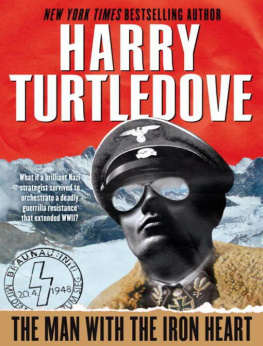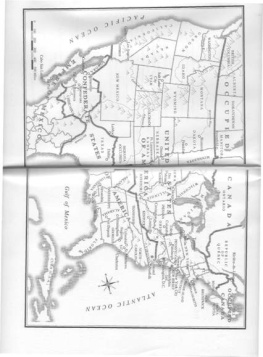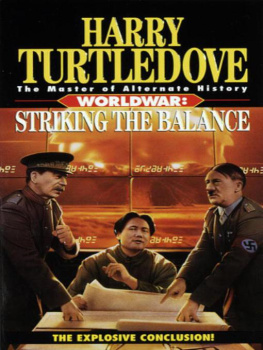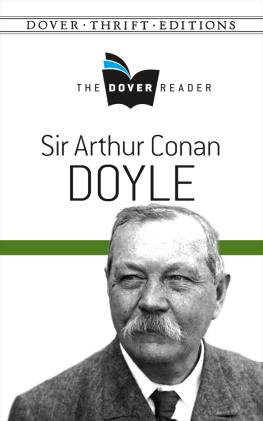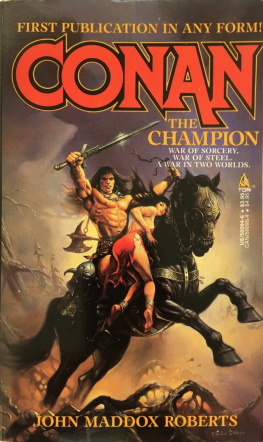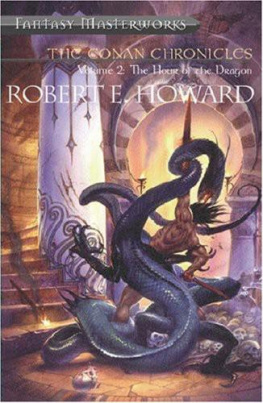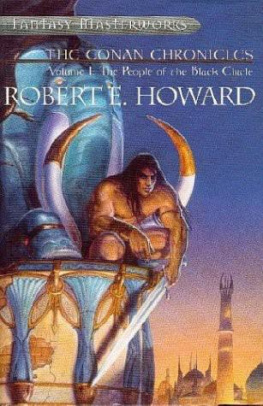Conan of Venarium
by Harry Turtledove
Chapter One
The Coming of the Aquilonians
Wagon wheels groaned. Horses' hooves drummed. Above and behind and through all the other sounds came the endless thump of heavy boots in the roadway. Lithe Bossonian archers and the broad-shouldered spearmen of Gunderland made up the bulk of Count Stercus' army. They eyed the small number of heavily caparisoned Aquilonian knights who rode with Stercus with the amused scorn freeborn foot soldiers often accorded their so-called social betters.
"What do they suppose they're going to do with those horses when we get up into Cimmeria?" asked Granth son of Biemur. The Gunderman coughed. He marched near the middle of the long column, and the road dust coated his broad, friendly face and left his teeth gritty.
His cousin Vulth snorted. "Same as they always do," he answered.
"And what's that?" demanded Granth. He and Vulth squabbled all the time, sometimes in a friendly way, sometimes in earnest. Vulth was olderhe had to be close to thirtyand taller, but deep-chested, big-boned Granth owned a bull's strength his cousin had trouble matching.
Here, though, Vulth was more interested in sniping at the Aquilonian aristocrats than in scoring points off Granth. "Why, they use 'em to flee, of course," he replied. "They can run from the wild men faster and farther than us poor foot sloggers."
Granth laughed. So did several other soldiers in their company. But their sergeant, a scarred, grizzled veteran named Nopel, growled, "Shut your fool's mouth, Vulth. If the count hears you talking like that, you'll be lucky if he just puts stripes on your back."
"I'm not afraid of him," said Vulth, but his wobbling voice gave the words the lie. Count Stercus hated everyone in his own army with a fierce and rancorous passion. Granth had yet to hear what he had done down in Tarantia, the capital, to be relegated to the gloom of the northern frontier, but it must have been something dreadful.
But, however much Stercus despised his own men, he reserved his most savage loathing for the Cimmerians. How many times had he harangued the army about the barbarous savages they were going to face? More often than Granth could easily remember; that was certain. If Stercus had his way, he would wipe every Cimmerian off the face of the earth.
Peering through the dust as best he could, Granth looked north toward the hills of Cimmeria. Dark forests of pine and fir and spruce robed those hillsides, making them even more somber than if they were of bare rock. Mist clung to the hills, gray clouds scudded low above them.
"Mitra!" muttered Granth. "Why do we want that miserable country, anyway? Why would anybody in his right mind want it?"
Nopel grunted. "Plain you didn't grow up on the border, the way I did. You ever had a pack of those wild wolves come howling down on your farm or village to steal and burn and kill, you wouldn't ask stupid questions like that." The sergeant spat in the roadway.
Abashed, Granth marched along in silence for a while. But his was not an easy spirit to quell, and before long he said, "You can't even see if anybody lives in those woods."
"Oh, no you can't see the Cimmerians there," said Nopel. "Don't you worry about it, though. Whether you see them or not, they see you."
More silence followed. More often than not, Gundermen and Bossonians, good-natured men close to the land, would sing as they marched: ferocious songs of what they intended to do to their foes and bawdy ballads about the wenches they'd left behind and the others they expected to find after they beat the enemy. No one in the whole long column seemed to feel like singing today.
Granth looked toward the huge Aquilonian flag a standard-bearer carried at the head of the column. The great gold lion on black heartened him. Aye, the Cimmerians were wolves, but when faced with a lion wolves slunk away. Granth's hand tightened on the shaft of his pike. Let the wolves howl! When the fight came to close quarters, he would make them howl on a different note.
A stream no different from any of the others the army had forded wound down out of the darkly wooded hills and through a verdant meadow. Pioneers ran forward, seeking a ford, and soon found one. The standard-bearer splashed across, the water rising no deeper than his thighs. The Aquilonian knights forded the stream next. Most of them urged their horses forward to form a protective wall to shield the rest of the army against any possible onslaught from the north. Count Stercus and a few of his henchmen, however, reined in just on the far side of the stream.
"You see?" muttered Vulth. "He hasn't the stomach to advance himself."
"No, look," answered Granth. "He's speaking to the foot soldiers as they cross."
"Well, so he is," said Vulth. "Still, actions talk louder than words, or so our grandsire always used to say."
Sergeant Nopel cuffed him, hard enough to stagger him and make him swear. "I don't care what your granddad used to maunder on about," snapped Nopel. "What I say is, you talk too cursed much."
By then, the company had almost reached the stream. Granth drew his sword and held it high so the blade would not get wet and rust. When he crossed, his boots crunched on gravel in the streambed. Cold water poured down over his boot tops and soaked his feet. He cursed resignedly; he had known that would happen. He would have to sit close by the fire tonightand every other man in the company would have wet feet, too. There would be a lot of pushing and jostling before that got sorted out.
He squelched up onto the north bank of the stream. "Welcome to Cimmeria!" Count Stercus called from horseback, not to Granth in particular but to all the men who were coming up onto dry land just then. "Welcome, I say, for we are going to take this land away from the barbarians and make it ours."
Stercus sounded very sure, though his voice was higher and thinner than Granth would have liked in a commander. He wanted a man who could bellow like a bull and make himself heard across a mile of battlefield. Stercus was young to have a command like this, too, for he could not have had more years than Vulth. His lean, hawk-nosed, pallid face would have been handsome but for dark eyes set too close together and a chin whose weakness the thin fringe of beard he wore could not disguise.
"The savages shall surely flee before us," declared Stercus.
"I hope he's right," said Granth.
"If the Cimmerians ran whenever somebody poked them, Aquilonia would have taken this country hundreds of years ago," said Vulth. "We'll have plenty of fighting to do yet. Don't you worry about that."
Granth looked to see if Sergeant Nopel would tell Vulth to shut up again. Nopel said not a word, from which Granth concluded the sergeant thought his cousin was right. The Aquilonians trudged north, deeper into Cimmeria.
Iron belled on iron. Sparks flew. Mordec struck again, harder than ever. The blacksmith grunted in satisfaction and, hammer still clenched in his great right hand, lifted the red-hot sword blade from the anvil with the tongs in his left. Nodding, he watched the color slowly fade from the iron. "I'll not need to thrust it back into the fire, Conan," he said. "You can rest easy at the bellows."
"All right, Father." Conan was not sorry to step back from the forge. Sweat ran down his bare chest. Though the day was not warm few days in Cimmeria were warm hard work by the forge made a man or a boy forget the weather outside. At twelve, the blacksmith's son stood on the border of manhood. He was already as tall as some of the men in the village of Duthil, and his own labor at Mordec's side had given him thews some of those men might envy.
Yet next to his father, Conan's beardless cheeks were not all that marked him as a stripling. For Mordec was a giant of a man, well over six feet, but so thick through the shoulders and chest that he did not seem so tall. A square-cut mane of thick black hair, now streaked with gray, almost covered the blacksmith's volcanic blue eyes. Mordec's close-trimmed beard was also beginning to go gray, and had one long white streak marking the continuation of a scar that showed on his cheek. His voice was a deep bass rumble, which made Conan's unbroken treble all the shriller by comparison.
Next page

